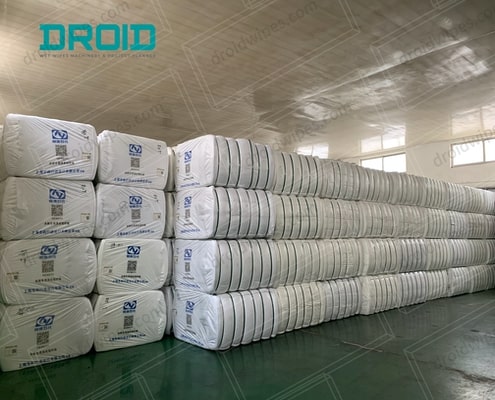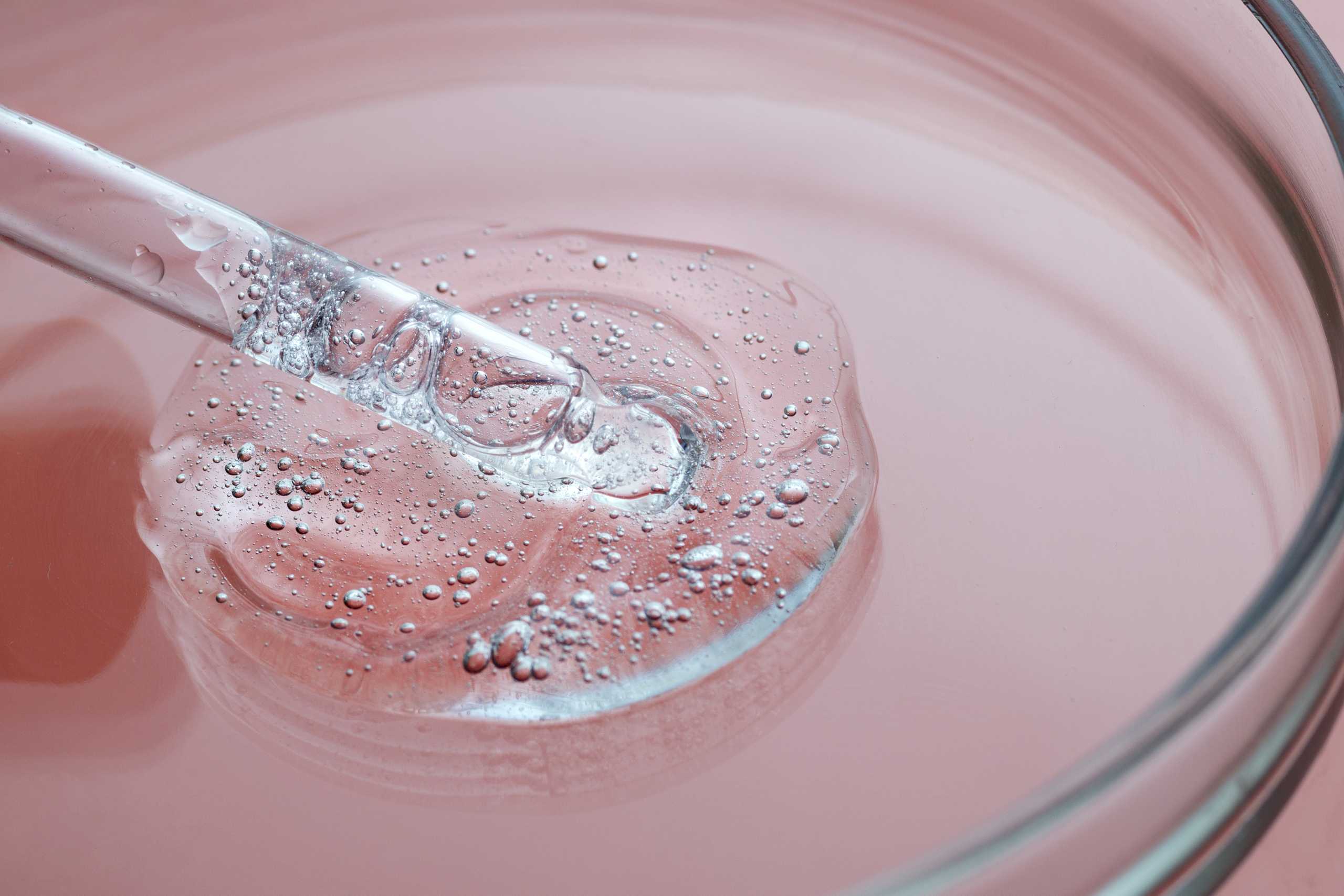Pioneering Biodegradable Materials
In the wet wipes production industry, there has been a notable increase in the development and use of biodegradable materials due to a strong focus on sustainability. Veteran wet wipes manufacturers have acknowledged the environmental problems linked to conventional non-biodegradable wipes and are actively working to solve them via innovation.
The Importance of Biodegradable Materials
Conventional wet wipes are often composed of synthetic fabrics such as polyester or polypropylene. The wet wipes raw materials are selected based on their strength, durability, and cost-efficiency. Nevertheless, they are non-biodegradable and may endure in the environment for centuries, adding to landfill accumulation and marine contamination. Improper disposal of these items may result in severe environmental issues, such as endangering animals and contaminating water sources.
Substitutes for Natural Fibers
Veteran wet wipes manufacturers are transitioning to natural fibers that are sustainable and biodegradable to address these problems. Bamboo, cotton, and cellulose materials are becoming common. For example, bamboo is a rapidly renewable resource that grows swiftly with less water and no pesticides needed. It has innate antibacterial characteristics, making it a perfect option for hygiene products. Cotton is more resource-intensive to cultivate but provides exceptional softness and is fully biodegradable. Cellulose, obtained from wood pulp, offers a cost-efficient and eco-friendly option that decomposes faster than synthetic fibers.
Advantages of Innovation
Biodegradable materials break down quickly when composted correctly, significantly decreasing their environmental effect. This change not only decreases the amount of garbage in landfills and seas but also reduces the carbon footprint of the production process. Wet wipes manufacturers may use plant-based products to take advantage of carbon-sequestering plants that absorb CO2 from the atmosphere as they develop, helping to reduce the consequences of climate change.
Obstacles and Resolutions
Although advantageous, the shift to biodegradable materials poses several difficulties. Natural fibers may not necessarily possess the same strength and moisture resistance as synthetic fibers, which might impact the performance of the product. Moreover, the expense of these natural resources may be elevated, influencing the ultimate product cost. Wet wipes manufacturers are investing in research and development to enhance the performance attributes of natural fibers and to discover more efficient and cost-effective methods to process these materials.
Ultimately, the innovative use of biodegradable materials by veteran wet wipes manufacturers signifies a significant advancement in the industry’s sustainability initiatives. This method not only tackles the environmental issues caused by conventional materials but also establishes a standard for others in the industry to emulate, encouraging a wider transition towards sustainability in consumer goods.
Embracing Water-Saving Technologies
In the drive towards sustainability, veteran wet wipes manufacturers are not only reworking their material choices but also drastically improving their water use methods. Embracing water-saving technology has become a crucial tactic for minimizing the ecological imprint of wet wipes manufacture, which typically needs considerable volumes of water.
The Importance of Water Conservation
The creation of wet wipes comprises several water-intensive procedures, from the actual manufacturing of the wipes themselves to the incorporation of moistening solutions. Historically, this has resulted in excessive water usage, which exerts substantial stress on local water supplies, especially in locations where water shortage is an urgent problem. Moreover, the wastewater created might contribute to pollution if not handled adequately.
Innovative Water-Saving Measures
Recognizing these issues, veteran wet wipes manufacturers are introducing novel technology and procedures to cut their water use dramatically. Here are some of the important technologies and approaches being adopted:
- Closed-Loop Water Systems: Many wet wipes manufacturers are moving to closed-loop systems, where water used in production is recycled and reused inside the facility. These systems employ innovative filtration and purification processes to purify the water to a high degree, making it appropriate for repeated usage without affecting product quality or safety.
- Dry Wipe Manufacturing: Some wet wipes manufacturers are considering the development of dry wipes, which users may wet at the point of use. This technology dramatically decreases the quantity of water used during the production process and lowers the weight of the product, which in turn minimizes transportation fuel consumption and emissions.
- Efficiency Upgrades in Equipment: Updating and adapting aging machinery with more water-efficient technology is another useful technique. This might involve the installation of improved control systems that accurately monitor water flow and decrease waste during manufacturing.
- Process Optimization: By streamlining manufacturing processes, industries may lower the amount of water required per unit of output. This can require improved planning and scheduling to reduce downtime and water usage, or restructuring specific processes to be less water-intensive.
Broader Environmental Impact
The adoption of water-saving technology not only helps decrease the direct use of water but also lowers the energy consumed in water treatment and heating, resulting in fewer carbon emissions. Furthermore, by creating less effluent, these technologies minimize the load on local sewage and water treatment facilities, leading to an overall healthier ecology.
Challenges and Ongoing Efforts
While the change to water-saving technology brings numerous advantages, it also comes with obstacles such as high initial investment costs and the need for continuing maintenance and monitoring to ensure systems run properly. Despite these difficulties, the long-term environmental and economic advantages offer a significant motivation for firms to continue investing in these technologies.
In conclusion, by implementing water-saving solutions, veteran wet wipes manufacturers are not only boosting their sustainability but also creating a pattern for responsible water usage in the industry. This proactive strategy is vital for the long-term success of the wet wipes sector and for the protection of world water resources.
Implementing Zero-Waste Production Processes
Veteran wet wipes manufacturers are now focusing on zero-waste manufacturing methods as a key part of their sustainability efforts. Zero waste entails restructuring life cycles and manufacturing methods to ensure all items are reused and nothing is disposed away in landfills or incinerators. This method not only decreases environmental harm but also matches the increasing customer desire for sustainable goods.
Comprehending Zero-Waste Manufacturing
Zero-waste production in wet wipes manufacturing involves establishing a circular economy for the goods and their production processes. This entails many crucial tactics:
- Material Recovery: The first stage involves maximizing the retrieval of materials throughout the production process. This involves recycling leftover materials from the production line by reintroducing them into the manufacturing process or finding other applications for them.
- Process Optimization: Process Optimization involves refining manufacturing procedures to reduce waste output from the beginning. This may include using sophisticated manufacturing methods, accuracy in material cutting, and improved inventory control to minimize overproduction and excess materials.
- Extending the Product Lifecycle: Creating items with extended durability or facilitating their recyclability. To improve wet wipes, it is important to provide packaging that is biodegradable or recyclable to minimize the product’s waste impact.
- Collaborating for Long-Term Environmental Responsibility: Engaging with suppliers, customers, and waste management firms to optimize the sustainability of all stages of the product lifecycle. This involves collaborating with logistics partners to enhance shipping efficiency and reduce emissions, while also providing customers with accessible disposal solutions.
Advantages of Zero-Waste Processes
Implementing zero-waste systems has several advantages:
- Cost Efficiency: Wet wipes manufacturers may achieve considerable cost savings by minimizing waste, leading to reduced expenses on material procurement and waste disposal.
- Brand Reputation: Implementing zero-waste policies improves a company’s reputation and attractiveness, especially to environmentally aware customers.
- Regulatory Compliance: Zero-waste methods assist organizations in complying with rules on trash reduction and environmental preservation, enabling them to surpass legal standards and avoid possible penalties.
Obstacles to Conquer
Although there are evident advantages, the shift to zero-waste production presents obstacles. Significant upfront costs for technology and training may hinder progress, as well as the intricacy of overhauling current manufacturing methods. The effectiveness of zero-waste projects relies heavily on consumer behavior, especially in the disposal of items, which may be difficult to alter.
Continuing Innovations and Endeavors
Continuous innovation and development are crucial for properly implementing and maintaining zero-waste operations. This involves allocating resources towards research and development to explore novel materials and technologies that support recycling and waste minimization. It includes continuous education and interaction with customers to make them aware of the significance of correct disposal and recycling.
Ultimately, via the adoption of zero-waste production methods, veteran wet wipes manufacturers are reducing their ecological footprint and leading the path towards a more sustainable manufacturing future. Being proactive is essential for achieving present and future sustainability objectives, benefiting companies, customers, and the environment.
Championing Chemical-Free Formulations
Veteran wet wipes manufacturers are now focusing on chemical-free formulations to promote sustainability, addressing environmental and health issues. The industry’s move towards employing fewer chemicals and more natural materials is a crucial part of its movement towards more ecological responsibility.
Transitioning from Harsh Chemicals
Conventional wet wipes often include a range of chemicals, such as preservatives, scents, and cleaning agents, some of which may be harsh or possibly detrimental to the environment and human health. These compounds may irritate the skin of sensitive persons and provide ecological dangers when they are introduced into rivers, possibly causing damage to aquatic life and changing ecosystems.
Advantages of Chemical-Free Formulations
- Environmental Protection: Wet wipes manufacturers may reduce environmental pollution by decreasing the chemical load in their goods. This is crucial for items such as wet wipes, since they have the potential to enter rivers and seas. Typically, natural compounds are more biodegradable and have a lower chance of accumulating in the environment.
- Consumer Safety: Wet wipes devoid of chemicals are milder on the skin, making them appropriate for customers with allergies, sensitivities, or worries about artificial components. This is particularly crucial for items designed for infants and young children.
- Regulatory Compliance: Adhering to chemical-free formulations in consumer items helps producers comply with tightening laws, ensuring they remain ahead of legal and financial penalties.
Challenges in Implementing Natural Formulations
However, the shift to chemical-free formulations has challenges:
- Preservation and Efficacy: Maintaining the durability and guaranteeing the efficiency of wet wipes without conventional chemicals might pose challenges. Natural preservatives often have a lower shelf life or need more meticulous handling and storage.
- Cost Factors: The use of natural and organic products may raise manufacturing costs and retail prices compared to synthetic equivalents.
- Consumer Expectations: It might be difficult to meet consumer expectations for product performance and texture when eliminating well-known chemical components. Education on the advantages and constraints of natural substances is often essential.
Advancements in Organic Components
Wet wipes manufacturers are investigating creative natural alternatives and technology to address these concerns.
- Novel Natural Preservatives: Utilizing extracts from plants such as grapefruit seed or green tea, known for their innate antibacterial characteristics, to substitute conventional preservatives.
- Plant-based Surfactants: Plant-based surfactants are generated from coconut oil, maize, and soy and are utilized as mild alternatives to traditional surfactants for their cleaning characteristics.
- Essential Oils: Essential oils are natural perfumes used for their pleasant aromas and medicinal capabilities, including lavender for its relaxing effects.
Anticipating the Future
The trend towards chemical-free formulations is expected to increase as more people seek safer and ecologically friendly goods. This trend is spurring notable innovation in the industry, with veteran wet wipes manufacturers leading the way. These initiatives not only reduce the environmental effects of wet wipes but also appeal to health-conscious consumers, thereby promoting a more sustainable and ethical company.
Advancing Legislative Advocacy and Consumer Education
Veteran wet wipes manufacturers are more involved in lobbying for laws and educating consumers as part of their larger commitment to sustainability. These endeavors are essential for establishing industry norms and influencing customer behavior, eventually resulting in more environmentally conscious activities universally.
Legislative Advocacy for Sustainable Policy
- Advocacy for Industry Standards: By engaging in conversations on environmental laws, veteran wet wipes manufacturers may influence rules that encourage sustainable practices. They support guidelines that mandate the use of biodegradable materials, limit the use of toxic chemicals, and promote the recycling and correct disposal of wet wipes.
- Collaboration with Regulatory Bodies: Collaborating with regulatory authorities is essential for successful legislative campaigning to create realistic and beneficial standards for both the environment and the sector. These partnerships may assist wet wipes manufacturers in staying ahead of compliance challenges and proactively adjusting to new rules.
- Advocating for Sustainable Legislation: Wet wipes manufacturers might support or start legislative initiatives that seek to minimize environmental harm. This may include supporting legislation that prohibits the promotion of non-biodegradable wet wipes as “flushable,” since this may lead to substantial sewage issues.
Consumer Education: Increasing Awareness and Accountability
- Product Usage Notification: Education programs often emphasize correct product use, including advising customers to discard wet wipes in the trash instead of flushing them, regardless of their claimed flushability. This helps to reduce the obstruction of municipal sewage systems, an issue often linked to improper disposal of wet wipes.
- Emphasizing Environmental Impact: Wet wipes manufacturers inform customers of the environmental consequences of their product selections. The package contains thorough information on the ingredients’ sustainability and the product’s biodegradability.
- Encouraging Responsible Decision-Making: Wet wipes manufacturers may influence market trends towards sustainability by educating customers on the advantages of selecting items produced via eco-friendly methods. This, in return, promotes the industry’s transition towards more sustainable practices in general.
Challenges and Strategies
- Communication Obstacles: Effective communication may be difficult, particularly when attempting to alter entrenched customer behaviors. Wet wipes manufacturers must discover explicit and persuasive methods to communicate their messages.
- Balancing Information and Marketing: Striking a balance between providing information and promoting things is crucial. Wet wipes manufacturers need to guarantee that their educational initiatives are seen as authentic and not just a marketing tactic.
- Adapting to Policy Changes: Wet wipes manufacturers need to regularly adjust their lobbying and education programs to comply with updated environmental rules and meet consumer expectations as legislation progresses.
Engaging in legislative lobbying and educating consumers are enduring obligations that need continuous dedication and adjustment. Veteran wet wipes manufacturers contribute to the sustainability of their goods and promote an educated customer base and ethical industry by spearheading these initiatives. This two-pronged strategy establishes a basis for long-term environmental stewardship and positions these wet wipes manufacturers as frontrunners advocating for more ecological accountability in the consumer products industry.






